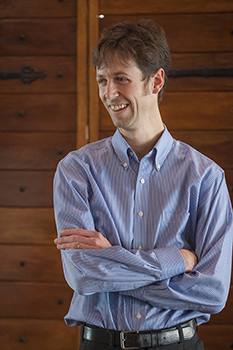Latest News Archive
Please select Category, Year, and then Month to display items
04 April 2024
|
Story Lunga Luthuli
|
Photo SUPPLIED
 Dr Juliet Kamwendo champions gender-inclusive climate action in Africa. Her expertise at the recently held AFR100 workshop highlighted vital steps towards sustainable and equitable development.
Dr Juliet Kamwendo champions gender-inclusive climate action in Africa. Her expertise at the recently held AFR100 workshop highlighted vital steps towards sustainable and equitable development.
Dr Juliet Kamwendo, Lecturer and Programme Director for Gender Studies in the Centre for Gender and Africa Studies at the University of the Free State, is spearheading efforts to integrate gender considerations into Africa's climate restoration agenda. Reflecting on her involvement, Dr Kamwendo stated, "This is particularly crucial, as women make up almost 50% of the population in Africa, and the depletion and degradation of land affect them disproportionately."
She recently served as a gender expert at the AUDA-NEPAD AFR100 workshop in Ouagadougou, Burkina Faso, from 25 to 29 March 2024. This initiative aims to restore forests and degraded land across Africa by 2030, with a focus on gender equality.
The workshop emphasised the integration of gender perspectives into the AFR100 project, acknowledging the disproportionate impact of land degradation on women. Dr Kamwendo's expertise highlighted the need to empower women in climate change interventions, addressing existing gender inequalities exacerbated by environmental degradation.
“Women – who are primarily responsible for household food security and water provision – bear the brunt of environmental degradation, leading to increased workloads, reduced income opportunities, and heightened vulnerability to climate-related disasters. Furthermore, the loss of forest cover and biodiversity further exacerbates the challenges faced by women, particularly in rural areas where they depend heavily on natural resources for their livelihoods,” added Dr Kamwendo.
Her participation highlights academia's crucial role in fostering inclusive and sustainable development, emphasising interdisciplinary collaboration to tackle complex environmental challenges. Through initiatives such as AFR100, stakeholders are working towards a more resilient and gender-responsive future for Africa.
Stanford University hosts book launch for UFS Prestige Scholar
2015-12-14

Dr Christian Williams, a member of the Vice-Chancellor’s Prestige Scholars Programme, had his book launched by Stanford University. The book called National Liberation in Postcolonial Southern Africa: A Historical Ethnography of SWAPO’s Exile Camps will be available in South Africa early in 2016.
Photo: Sonia Small |
A launch for the much-anticipated book by Dr Christian Williams from the University of the Free State (UFS) was sponsored by the Humanities Center and the Center for African Studies of Stanford University in the USA, among others.
The launch of the book, National Liberation in Postcolonial Southern Africa: A Historical Ethnography of SWAPO’s Exile Camps, coincided with the 40th anniversary of Angola’s independence.
The book was published by Cambridge University Press in September 2015, and the launch at Stanford was on 16 November 2015.
This groundbreaking study, which will be available in South Africa early next year, has already been lauded for its invaluable contribution and the depth of its scholarship. The author is a senior lecturer in the Department of Anthropology of the UFS, and member of the Vice-Chancellor’s Prestige Scholars Programme (PSP). He is a former Fulbright scholar, and holds a doctorate from the University of Michigan in History and Anthropology.
National Liberation in Postcolonial Southern Africa follows members of the South West Africa People's Organization (SWAPO) through three decades of exile in Tanzania, Zambia, and Angola.
It highlights how different Namibians experienced exile, as well as the tensions that developed within SWAPO as Namibians encountered one another while officials asserted their power and protected their interests.
It also follows the return of Namibians who lived in exile to post-colonial Namibia, examining the extent to which divisions and hierarchies that emerged in the camps still continue to shape Namibians today.